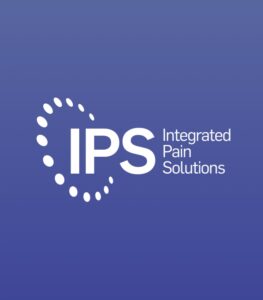Medication Management
About Opioid Use
For patients living with chronic pain, we use both opioid and non-opioid medications to manage pain and improve their quality of life. We also help patients who are transitioning off opioids and, when appropriate, provide Suboxone® or other medication alternatives.
Opioids are a powerful class of drugs and when used correctly, can greatly benefit pain management. However, they aren’t recommended for all types of chronic pain.
Opioids can help control severe pain. Oxycodone, hydrocodone, codeine, morphine, and fentanyl are examples of prescription opioids.
Using opioids can cause side effects. Users must be aware of the possibility of side effects and how to deal with them.
Opioids may cause constipation.
Pain and depression are often linked. Somewhat ironically, pain medication may also cause depression.
Opioids can mask severe pain. They can also affect the brain in a harmful way.
Opioid use can lead to dependence and addiction, which change personality.
Using opioids for an extended period can be dangerous due to severe side effects.
Tapering off opioids must be done safely and requires professional supervision. Sometimes it may be safe to stop completely. Other times it may be necessary to stop gradually allowing the body time to adjust. This is often referred to as “tapering.”
Opioids can block pain signals and help control severe pain. Opioids can also be dangerous. Some people become addicted to opioids and find it difficult to stop taking the drugs.
Opioid addiction can be overwhelming, robbing users of happiness and health. They can also steal away family and friends. However, opioid addiction is treatable.


 Nadine Shivers, FNP-C
Nadine Shivers, FNP-C Nicole Mealy, PA-BC
Nicole Mealy, PA-BC Jamie Delivuk, MSN, FNP-C
Jamie Delivuk, MSN, FNP-C
 Kimberly Box, ACNP
Kimberly Box, ACNP Thomas Bresley, MD
Thomas Bresley, MD Jackie Chavis, FNP
Jackie Chavis, FNP Marva Rich, PA-C
Marva Rich, PA-C John Rice, PA-C
John Rice, PA-C Laneshia Patrick, MSN, AGNP-C, PMHNP-BC
Laneshia Patrick, MSN, AGNP-C, PMHNP-BC Jennifer Miramontes, FNP-BC
Jennifer Miramontes, FNP-BC John Lane, MPAS, PA-C
John Lane, MPAS, PA-C Shalandria Knight, AGNP-C
Shalandria Knight, AGNP-C Patricia Grant, NP-C
Patricia Grant, NP-C Cecelia Glaubitz, MSN, FNP-C
Cecelia Glaubitz, MSN, FNP-C Sharon Delois Coggin, PA-C
Sharon Delois Coggin, PA-C Karen Warwick, FNP-BC
Karen Warwick, FNP-BC